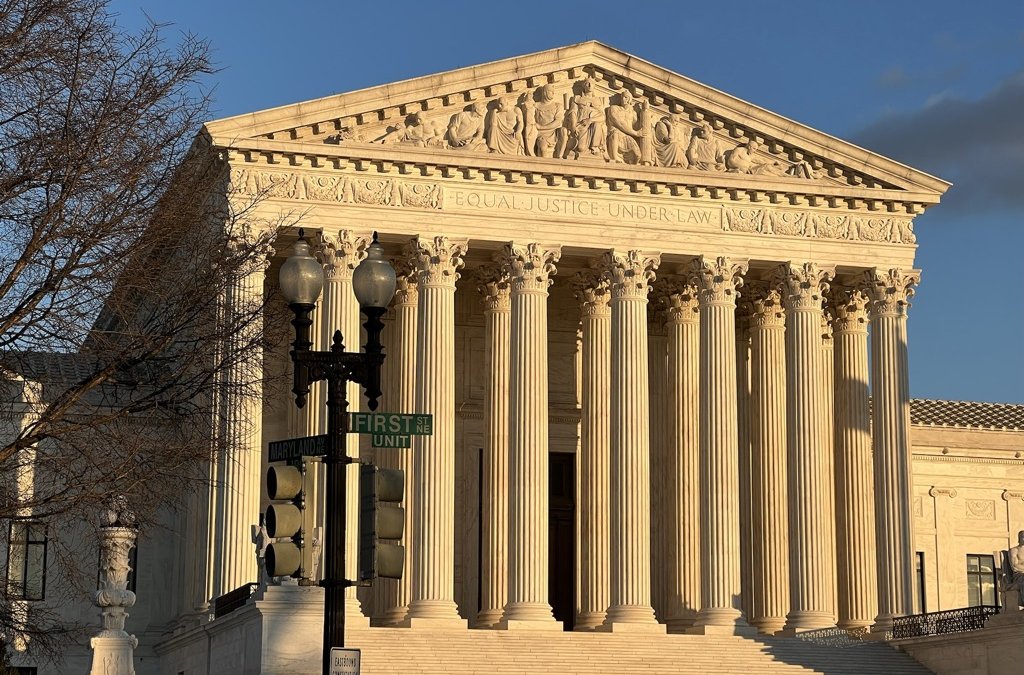WASHINGTON – Supreme Court Justices appeared receptive to broadening the scope of civil Racketeer Influenced and Corrupt Organizations (RICO) cases during oral arguments for Medical Marijuana, Inc. v. Horn on Tuesday.
The justices seemed likely to side with Daniel Horn, the case’s plaintiff, during their questioning of Attorney Lisa Blatt, who argued for the defendants.
“If you’re harmed when you lose a job, then you’ve been injured in your business, haven’t you?” Justice Elena Kagan asked. “The simplest, clearest reading of this statutory language is it doesn’t distinguish by what causes the harm.”
Those who want to contain the scope of RICO argue that if the Supreme Court allows Horn to plead a civil RICO claim, federal courts will become overwhelmed by the volume of federal RICO lawsuits that would otherwise be prosecuted in state courts.
Horn was injured in a car accident in February 2012 and sought a natural remedy for his pain relief. Employed as a truck driver, Horn purchased Dixie X CBD Dew Drops Tincture. He was regularly subject to random drug testing and thus researched the product, which claimed to contain 0% THC, the active ingredient in marijuana.
After calling Dixie X’s customer service line and consulting the FAQs on the company’s website to confirm the product did not contain THC, Horn consumed Dixie X, but subsequently failed a drug test for his employer. He was fired, and resultantly lost his wages and benefits.
Horn filed suit against Medical Marijuana Inc., Dixie Holdings, LLC and Red Dice Holdings, LLC, the three companies who falsely advertised Dixie X. Horn’s complaint included eight state law claims and one RICO claim, which alleged the companies committed mail and wire fraud.
RICO was enacted in 1970 in order to allow the government to prosecute individuals involved in organized crime. Individuals can sue under RICO and recover treble damages, or three times the amount of damage sustained.
The U.S. District Court for the Western District of New York ruled that Horn’s case lacked RICO standing, reasoning that the loss of wages stemmed from an antecedent personal injury, that is, the unintended ingestion of THC. Horn appealed the case to the U.S. Court of Appeals for the Second Circuit, which vacated the district court’s ruling and determined that Horn could file suit under RICO.
RICO allows plaintiffs to recover damages only if they are injured in their “business or property,” and the appellate court reasoned that “business” included employment, and thus Horn suffered an injury in his business.
The petitioners of the case argue that Horn’s lost wages were not a direct result of their false advertising, but instead a derivative of the antecedent injury. Plaintiffs cannot file suit under RICO for personal injuries, and the defendants claim that civil RICO suits are resultantly also barred for damages from personal injuries.
Justice Sonia Sotomayor questioned Blatt’s argument that personal injury cannot recover damages. “You’re raising an example that leads me to think that what you’re really arguing about is proximate cause, and not really whether personal injury is recoverable or not. It is under, by your own admission, certain circumstances,” said Sotomayor.
Kagan appeared most open to the expansion of RICO’s reach to damages caused by personal injury.
“It sounds like you think maybe the Second Circuit is right,” Blatt responded to Kagan’s argument. “The Second Circuit seemed to think lost wages are always recoverable, but medical expenses never would be because that results from a physical injury.”
Justice Ketanji Brown Jackson also questioned the role of personal injury in Blatt’s argument, given Horn did not allege personal harm but rather economic harm.
Still, other Justices appeared doubtful. Justice Clarence Thomas seemed more skeptical of the plaintiff’s argument, asking Attorney Easha Anand, who represents Horn, what she considered to be the difference between injury and damages. “So, if the harm is a loss of income, aren’t you collapsing or conflating the two?” he asked.
Chief Justice John Roberts similarly seemed doubtful, calling the business or property requirement a “significant limitation” to RICO’s reach. “The business or property requirement is pretty central to the heart of RICO and what separates it from all these other cases,” Roberts said.
Attorney Cory Andrews, General Counsel and Vice President of Litigation for the Washington Legal Foundation, which filed an amicus brief on the case urging the justices to limit the scope of RICO, spoke to Medill News Service about what an expansion of RICO could mean for state tort lawsuits.
“My guess is that justices will allow the suit to go forward,” Andrews said. “It’s going to turn every run-of-the-mill state tort action into a federal RICO action where plaintiffs are able to obtain treble damages.”


